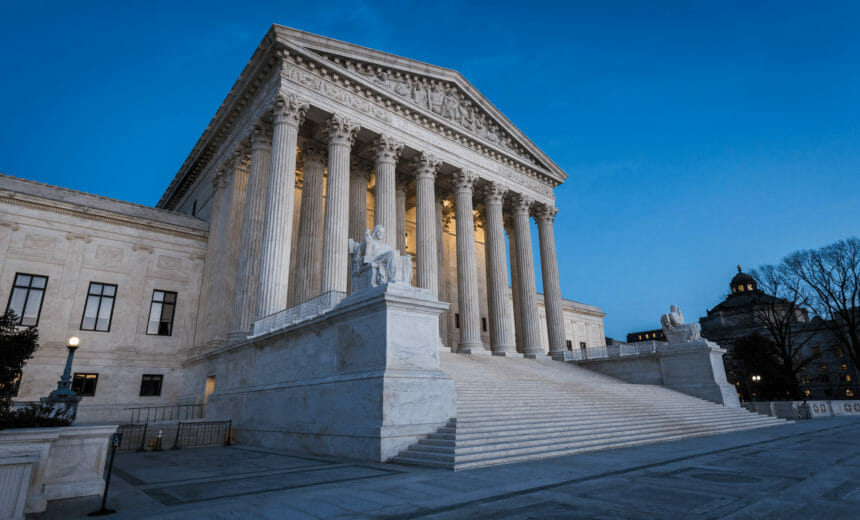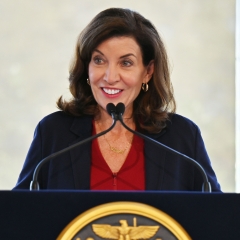

The U.S. Supreme Court declined Monday in a 6-3 ruling to hear a challenge to New York’s vaccine mandate for healthcare workers on religious grounds, and a legal expert says evidence is mounting that the court is unlikely to block such requirements.
The plaintiffs in the New York case — 16 doctors and a nurse — sued Gov. Kathy Hochul (D) and state health officials, claiming that the mandate violated their religious freedom.
“The challenges to the healthcare worker mandate in New York were based upon the First Amendment to the U.S. Constitution, to the extent it protects against governmental interference with the free exercise of religion, and Title VII of the Civil Rights Act, which requires covered employers to consider reasonable accommodations requests for those employees who object to the vaccine over a sincerely held religious belief,” Keith Wilkes, a labor and employment partner/shareholder at the Hall Estill law firm, told McKnight’s.
Justices Clarence Thomas, Samuel A. Alito Jr. and Neil M. Gorsuch dissented, with Gorsuch writing, “Under the Free Exercise Clause, government ‘cannot act in a manner that passes judgment upon or presupposes the illegitimacy of religious beliefs and practices.”
The high court blocked in October a similar challenge from nine “Jane Doe” healthcare workers in Maine.
“Given the Supreme Court has now refused to stop COVID-19 vaccination mandates for healthcare workers in New York, Maine and a hospital in Massachusetts, and refused to stop a mandate in the New York City schools or Indiana University, there is no sign the Supreme Court is inclined to block similar mandates,” Wilkes said.
It is unlikely that Monday’s decision will have any effect on challenges to federal vaccination mandates, according to Wilkes.
“This ruling does not mean the Biden administration’s mandates for healthcare workers, employees of federal contractors, or employers with over 100 employees will find similar favor at the highest court,” he said. “The legal challenge for those federal mandates is far different, focusing on whether the federal administrative agencies issuing the mandates exceeded their rule-making authority under federal law. In the past, the Supreme Court has kept a close eye on government overreach by administrative agencies.”


